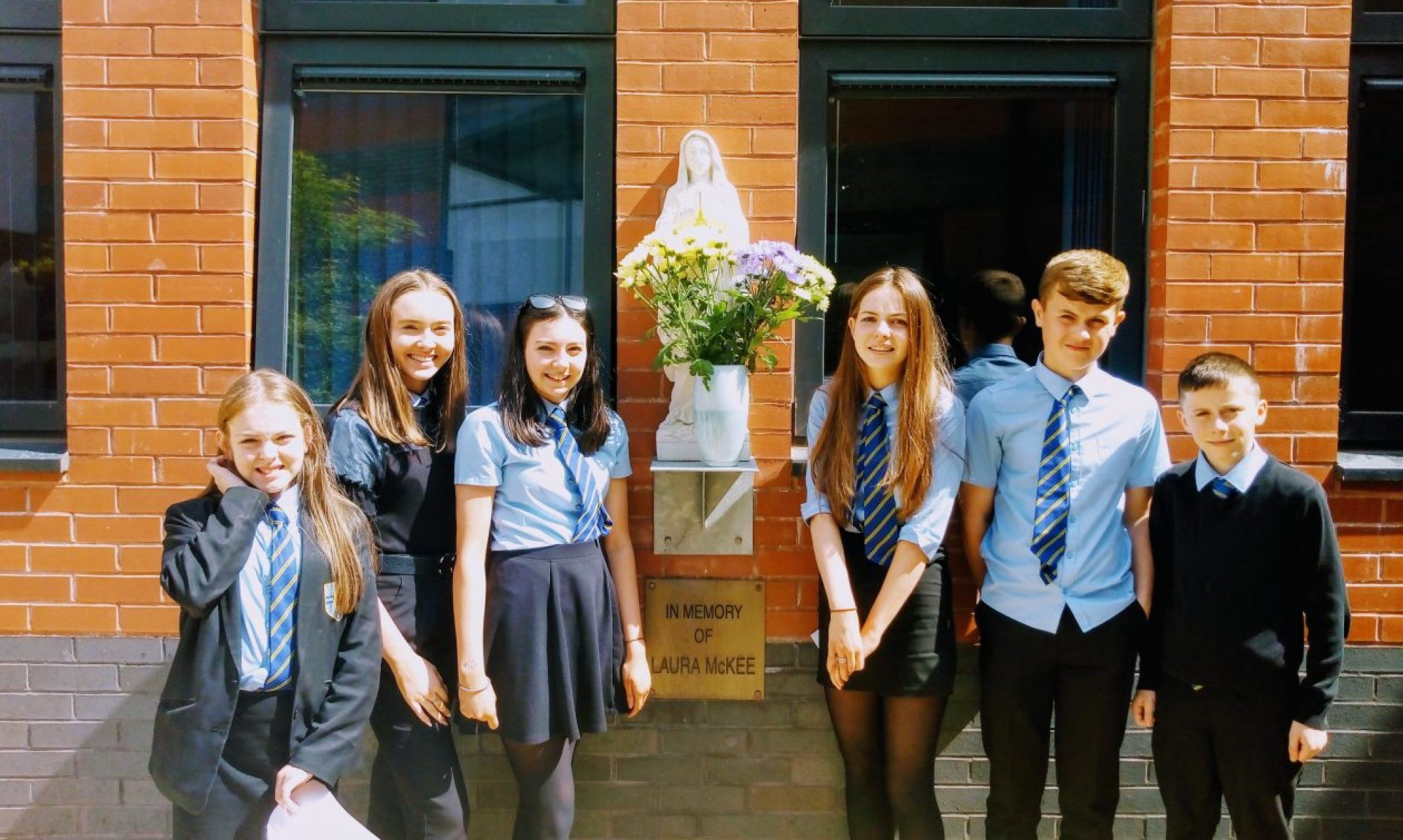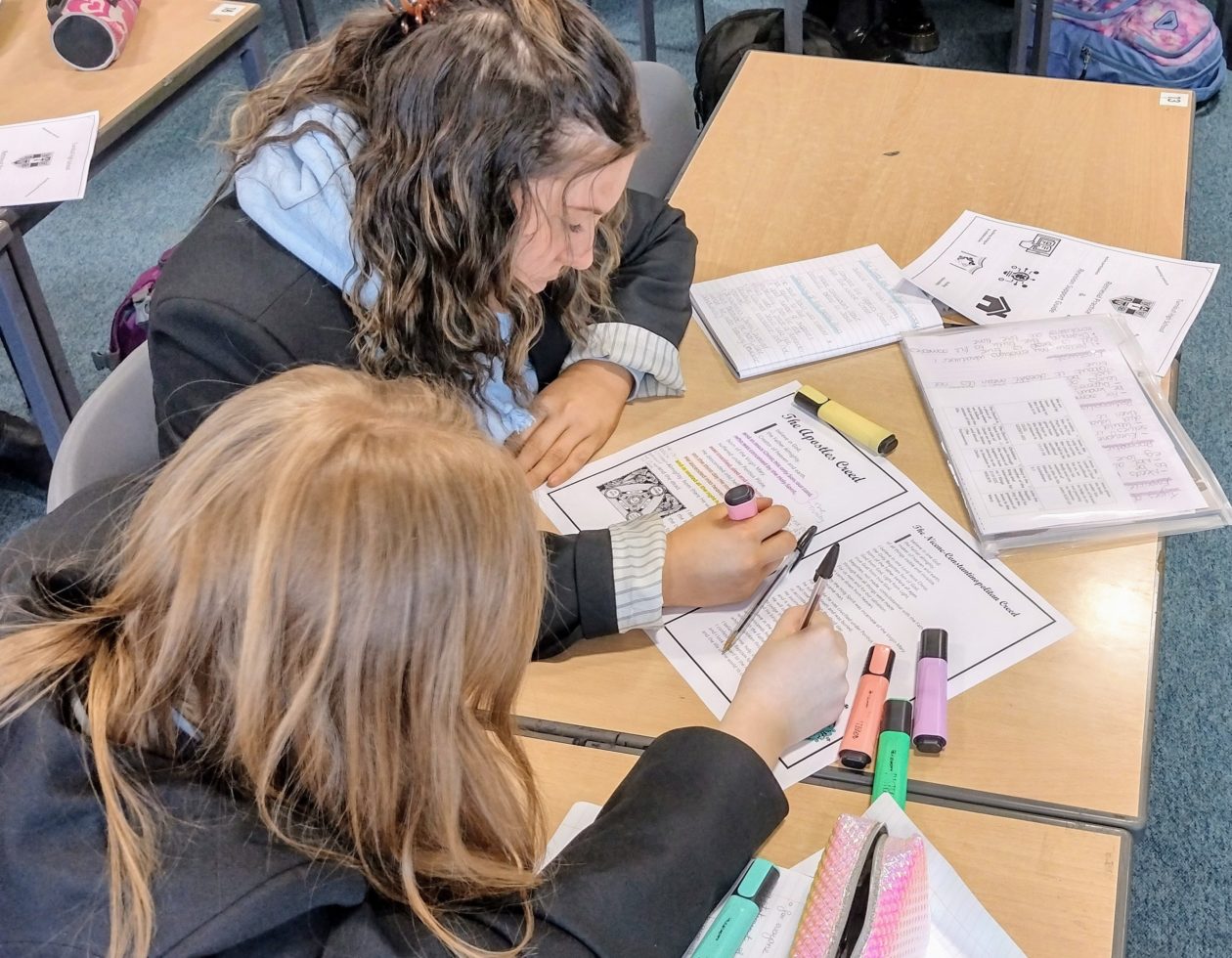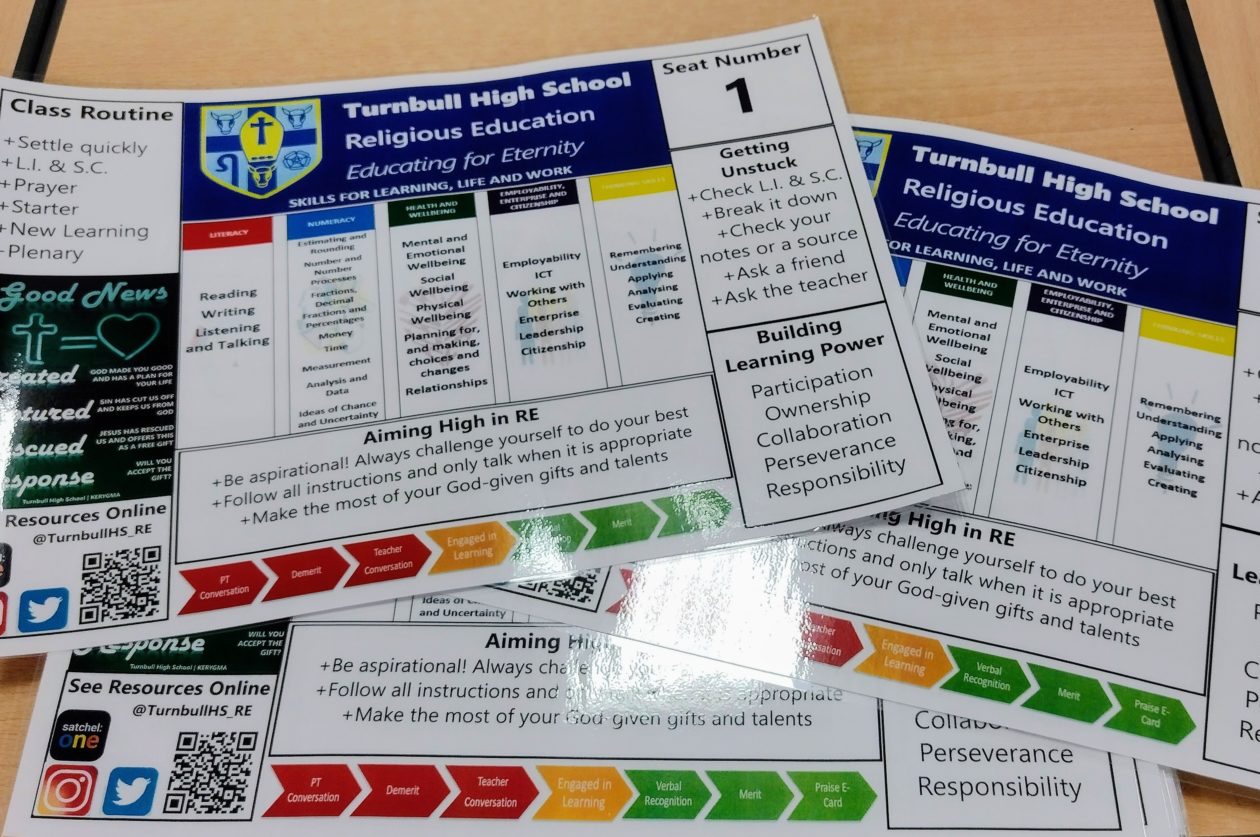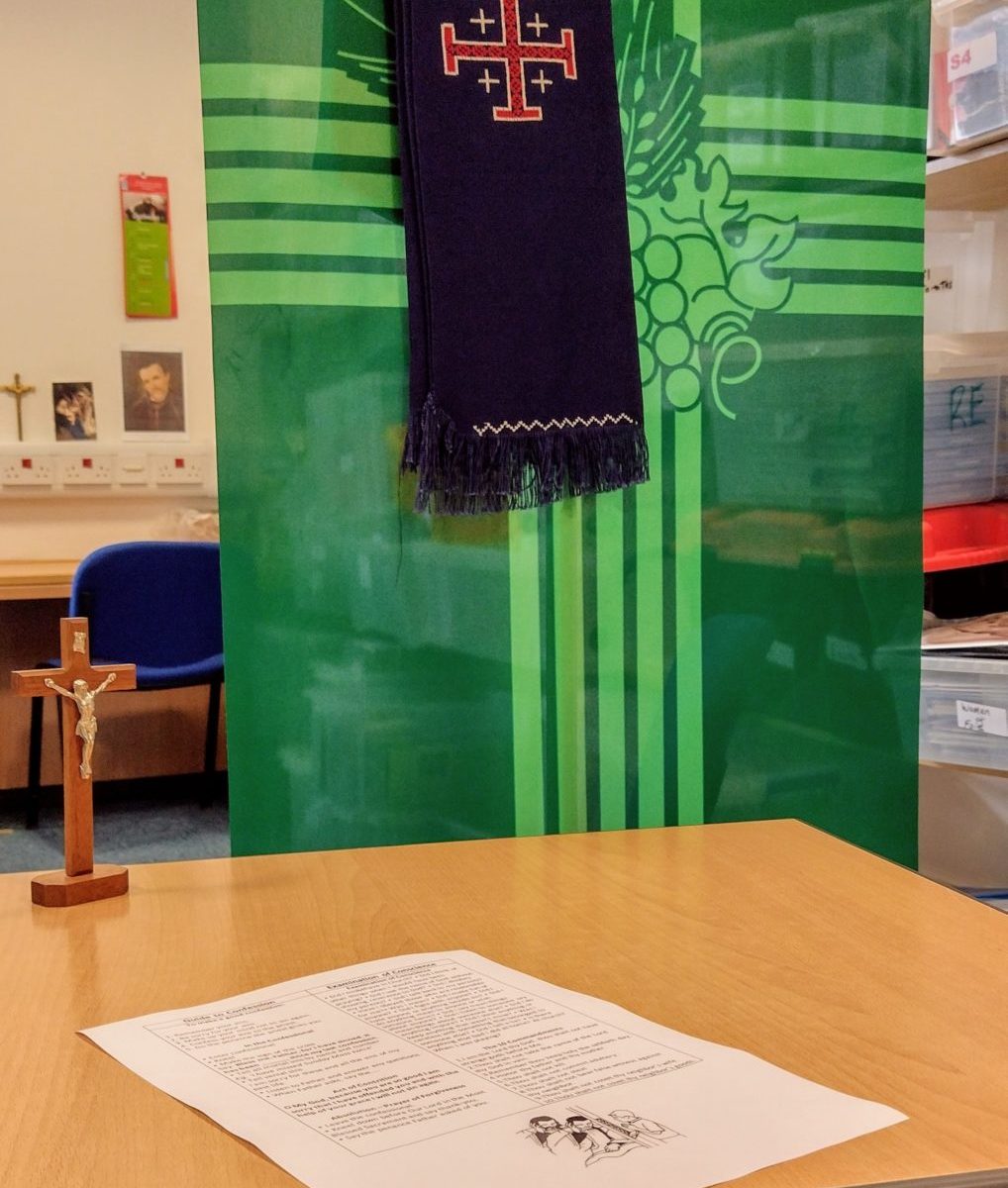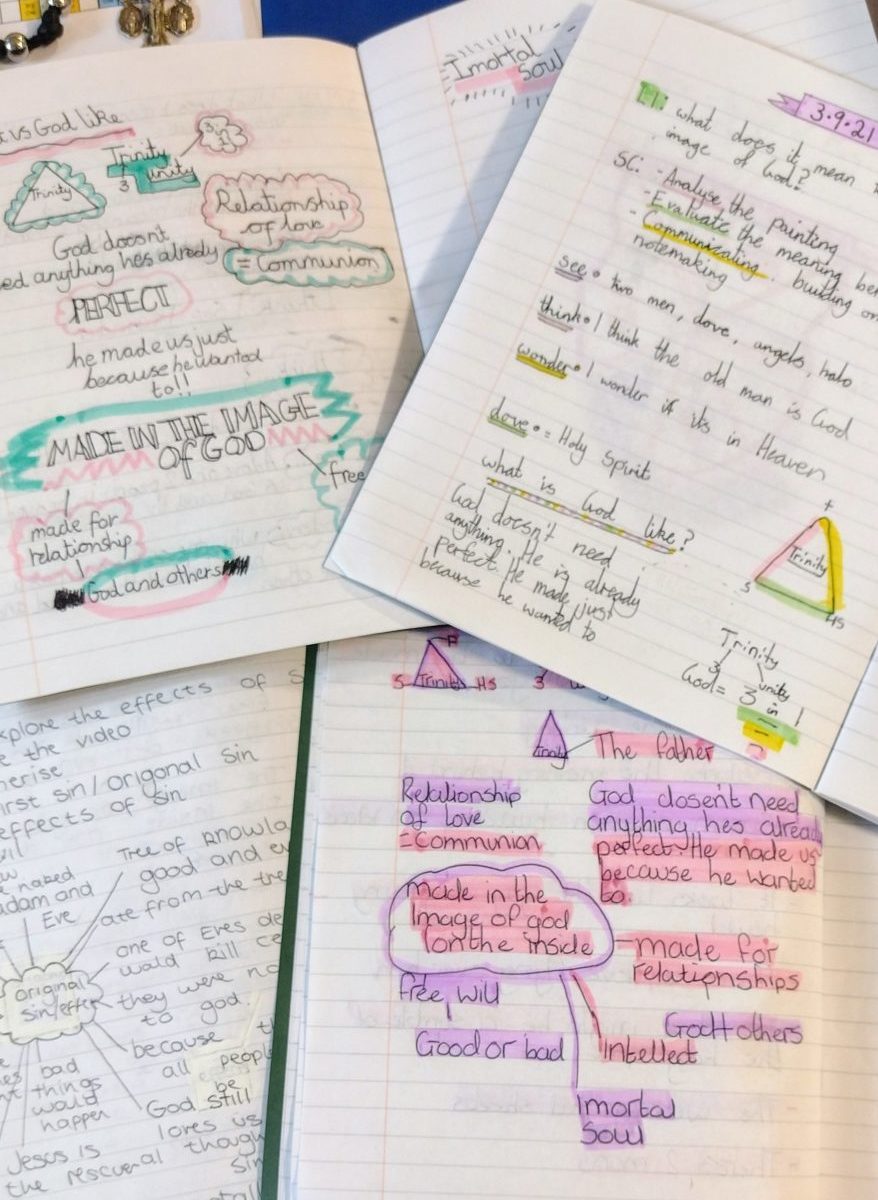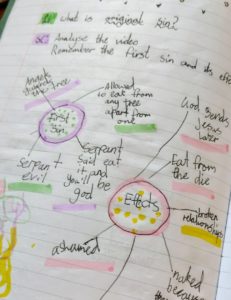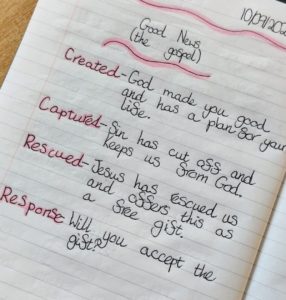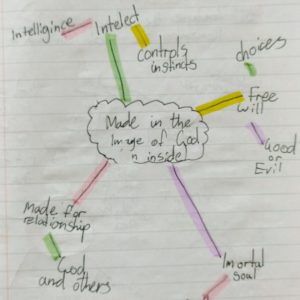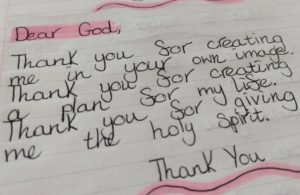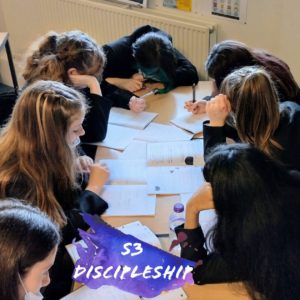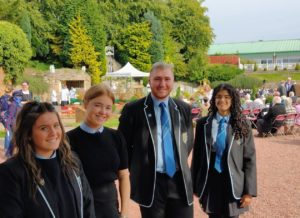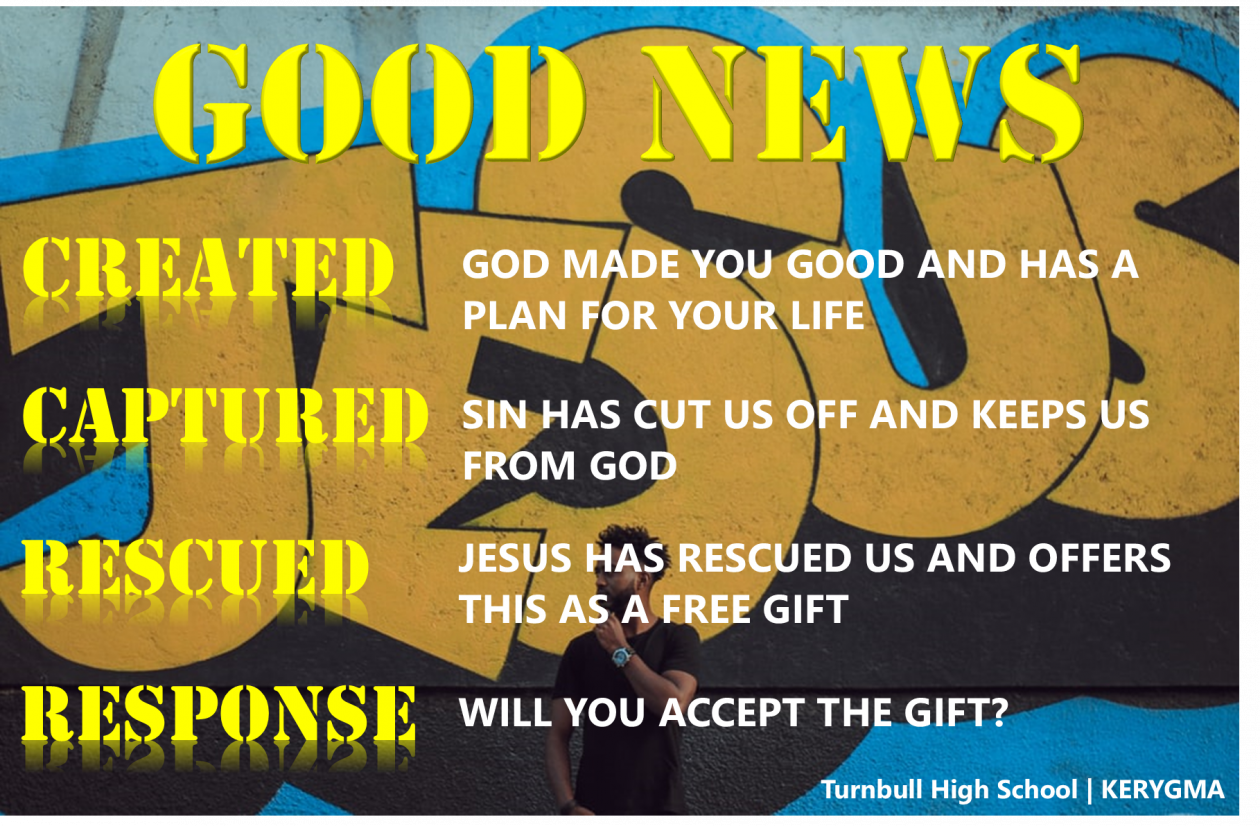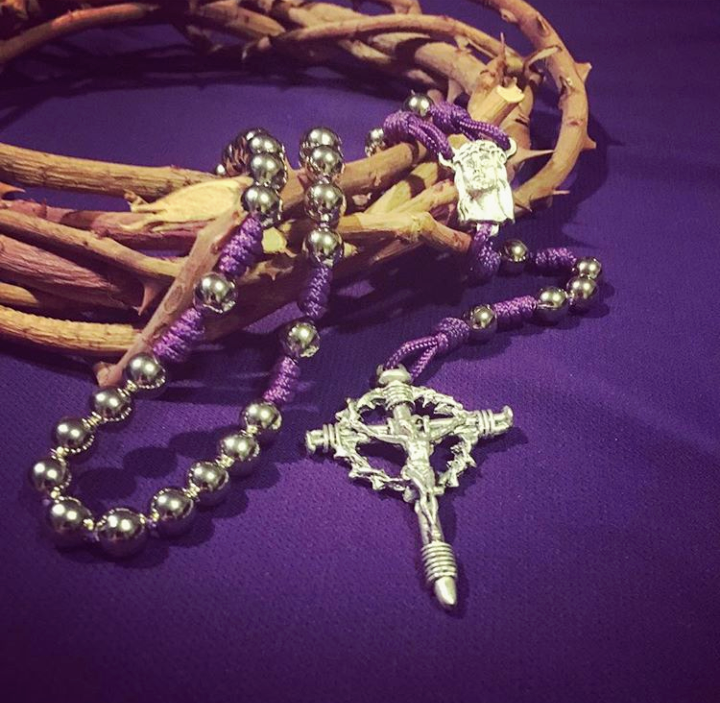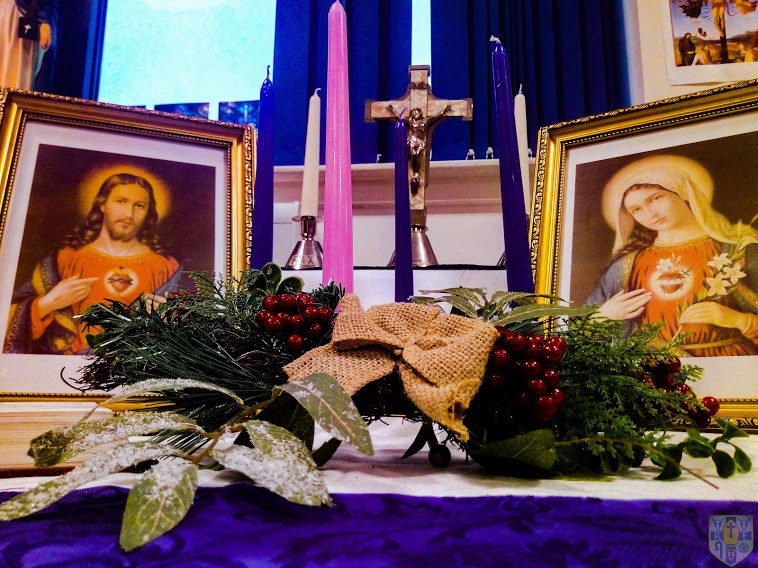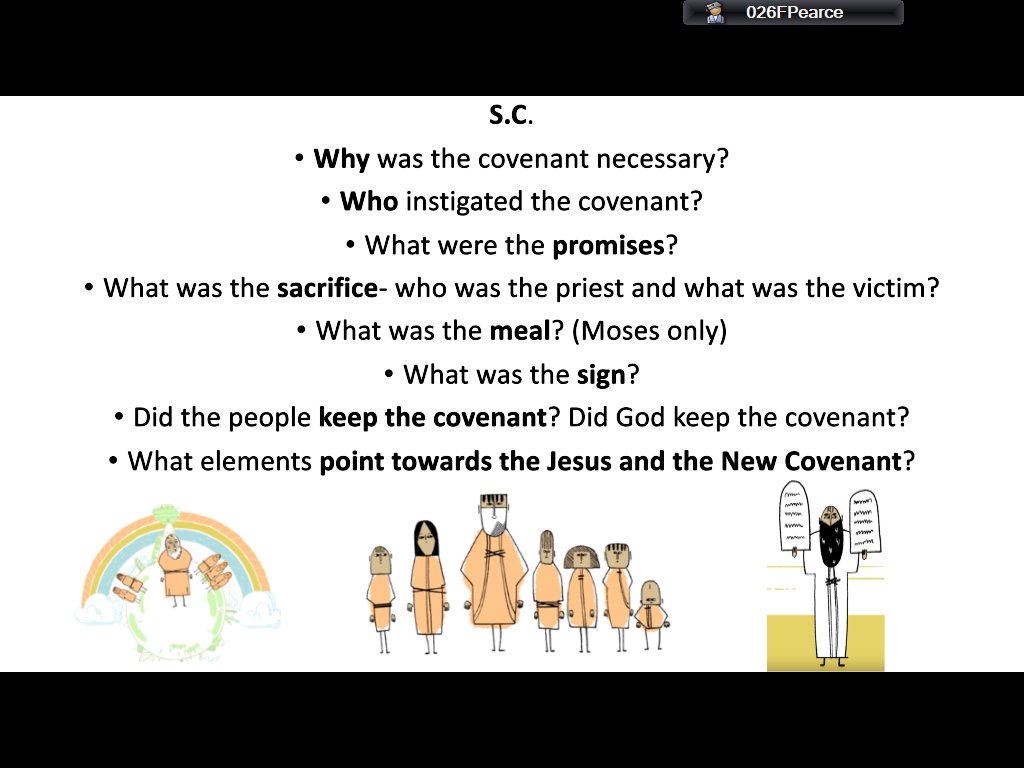At the end of Catholic Education week, we would like to share the article that was read at Mass in the parishes by our CREDO pupils.
CEW 2022: Communion, Participation, Mission
Catholic Education Week provides the perfect setting for two significant events in the life of Turnbull High School this year. Firstly, our Patronal Feast Day (21st November) gives us the opportunity to renew our consecration to the Immaculate Heart of Mary as our guide to knowing, loving and serving the Lord Jesus. Secondly, 2022 sees a significant review of our School Vision Values and Aims; the climax of several years of prayer and discernment involving all members of our school community.
As we consider the theme of Catholic Education Week – Communion, Participation, Mission – we reflect on how these headings give expression to our common identity and shared mission as a school with a uniquely Catholic identity.
Communion
As the young people, parents and teachers of Turnbull High School, we are united by our common choice for Catholic Education. In ‘coming together as a community’, as our school prayer says, we pledge ourselves to growing together in faithfulness toward our calling from God to be a ‘Community Of Faith Engaged In Learning’, ‘Centred on Christ’. The vision of Catholic Education put forward by the Church has been richly enhanced in Turnbull High School in recent times by the process of renewing how we articulate our shared identity. Guided by the Charter for Catholic Schools, input from Australian Catholic University, Notre Dame University (Ireland) and partners closer to home, we have all engaged with the key themes of what it means to be a Catholic school, bound together by our common values. Remembering that communion relies on love and that true, self-giving, sacrificial love comes from God, we are called to reflect on our level of communion with Him and how that unites us to each other as brothers and sisters of the Kingdom. This process gained new depth when, as a whole school, we engaged in the final consultation phase of our Vision, Values and Aims review as part of our feast day this week.
Participation
Our school brings together many people from varied backgrounds and offers a wide variety of opportunities for all of us to develop our academic achievement, skills and, most importantly, our life of virtue; that is, the habitual commitment to The Good.
The Second Vatican Council taught that the Holy Eucharist is the source and summit of the Christian life. It is in the Eucharistic Heart of Jesus that we learn the extent of love, a life laid down, a body broken and risen to new life. Just as many grains of wheat form the Host set aside for consecration, so Jesus’ Mystical Body in the world is formed from all who share the life of grace and are united with the Lord in Holy Communion. In this way, the Holy Sacrifice of the Mass and Adoration of the Lord in the Blessed Sacrament signify and bring about the deepest participation that we can have in our common life. Those who do not yet share this level of communion with the Church are no less called to participate in prayer as far as they are able and are invited to open their hearts to the Lord and one another.
Through our varied chaplaincy programme, the whole school community has opportunities to participate in the life and faith of Turnbull High School. Through formal and informal prayer, traditional and contemporary devotions and music, everyone is called to participate in prayer and discipleship.
Our policies and shared practice in our day to day work offers additional opportunities to participate in the shared mission of the Catholic school since everything we do should aim to reflect Jesus, to seek the face of Christ in others. Most recently our journey towards the use of restorative practice seeks to enable us to imitate the mercy of the Father, practice reconciliation and inspire virtue.
Participation in our Christ-centred community extends beyond our families, associated primaries and parishes and partners through our charity and outreach work. Through our commitment to upholding the dignity of others through meeting their physical and spiritual needs, our shared values impact all those who we seek to support through Mary’s Meals, Aid to the Church in Need, Pro-life work and most recently in our efforts to support the Shoebox Appeal and local foodbanks, to name only a few.
Mission
In Redemptoris Missio, Pope St John Paul II said that
“The time has come to commit all of the Church’s energies to the New Evangelisation. No believer in Christ, no institution of the Church can avoid this supreme duty: to proclaim Christ to all peoples.”
Turnbull High School is a centre of the New Evangelisation, a place where the Good News of salvation through Christ Jesus is proclaimed with renewed ardour, the only path to authentic human flourishing.
In every aspect of school life, we are called to help our young people to engage with the Gospel on personal and societal levels, to develop a life of discipleship and to become missionaries in whatever circumstances they find themselves, now and in the future.
At this exciting stage in our communal life, may we, by our reliance on the Holy Spirit speaking through the Church, continually grow in our fidelity to Jesus and in our enthusiasm for participating in the mission of bringing others to the joy of a life lived in Him.
Please pray for us as we continue on this journey to know, love and serve the Lord. Thank you.
